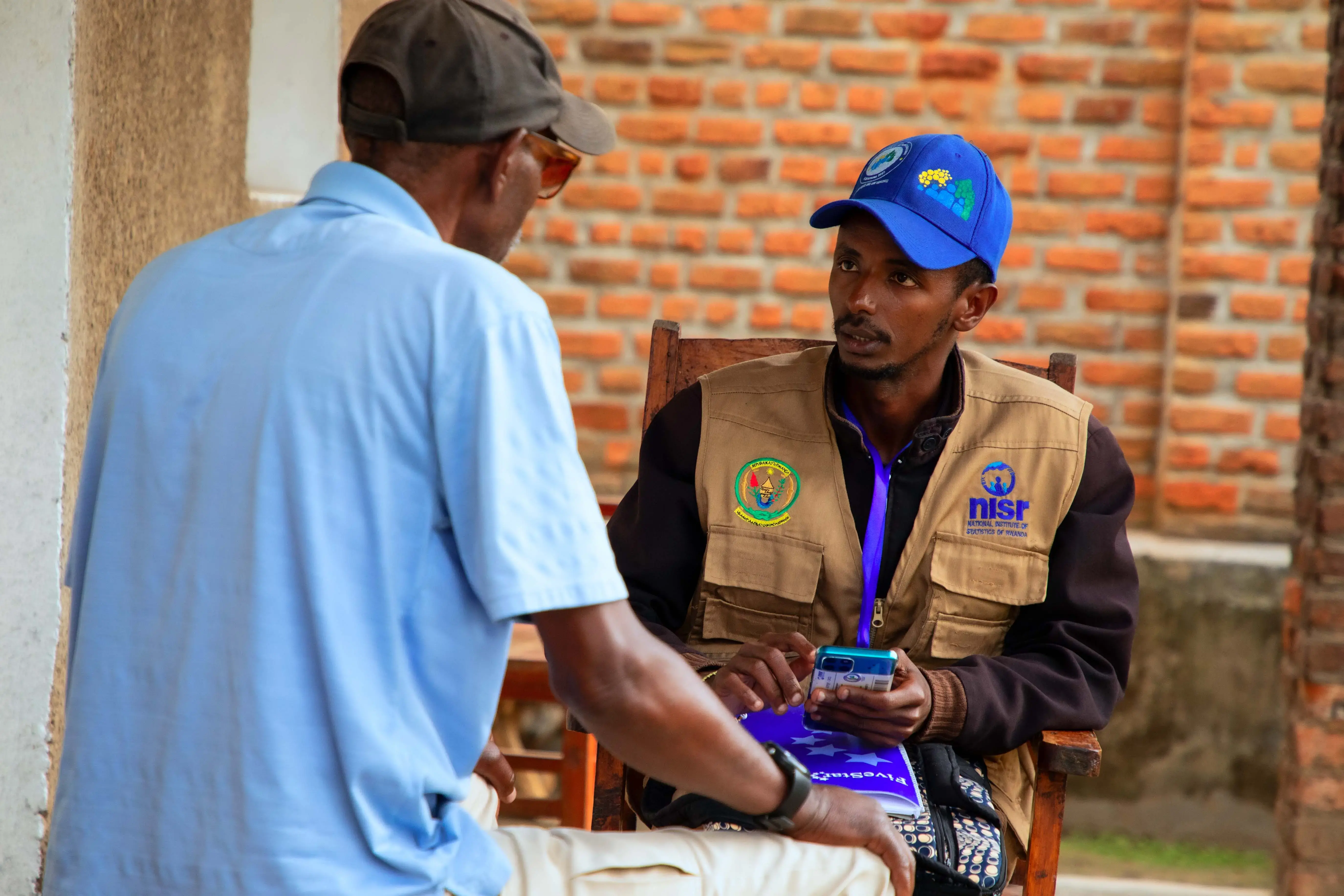Rwanda has registered an annual population growth rate of 2.3% over the last 10 years, reaching 13,246,394 in August 2022 and is projected to be 23.6 million by 2052. Females represent 51.5% of the population (6,817,068), whereas males represent 48.5% (6,429,326) of the total population.
UNFPA Rwanda uses its comparative advantages to strengthen national and subnational institutions of the government of Rwanda to generate, analyze and use population data to inform planning, policy formulation, implementation and monitoring of interventions in development and humanitarian settings. Disaggregated data are crucial to monitor the progress to achieve the Sustainable Development Goals and the Rwanda Vision 2050.
The joint programme on data outlines the support of the UN agencies in capacity building for the national and sub-national institutions coordinated by the National Institute of Statistics. Led by UNFPA, the joint programme is designed and implemented in the context of delivering as one, and participating agencies contribute financially and technically.
Areas of the interventions supported through the Joint Programme on Data
Census: UNFPA supports the Government of Rwanda to conduct the Population and Housing Census, a massive and complex exercise that provides a comprehensive snapshot of basic information on the resident population of Rwanda, its major characteristics and housing arrangements. The 2022 round of the Population and Housing Census was run using digital tools as per the UN recommendation (2022 Census main indicators report).
Demographic and Health Survey (DHS): The Demographic and Health Survey (DHS), is an exercise which aims at collecting data to monitor progress across Rwanda’s health programs and policies over 5 years. UNFPA Rwanda has constantly provided technical and financial support to the National Institute of Statistics of Rwanda (NISR) to ensure DHS is done every 5 years, and results are disseminated to allow progress tracking. The indicators measured in the DHS are very key to the ICPD agenda and SDGs targets and goals tracking (2019-2022 DHS).
The Demographic Dividend Study: For the first time in Rwanda, UNFPA provided technical and financial support to the Government of Rwanda to conduct a Rwanda Demographic Dividend Profile, research that assessed the socio-economic and human development potential of the country in short-, medium- and long-term period using a comprehensive approach. As the Country is winding up the United Nations Sustainable Development Cooperation Framework (UNSDCF), The National Strategy for Transformation (NST1), UNFPA in collaboration with the Ministry of Finance and Economic Planning (MINECOFIN) plans to conduct another round of the Demographic Dividend study, which will draw recommendations to inform the development of the 2024-2029 CF and the NST2.


